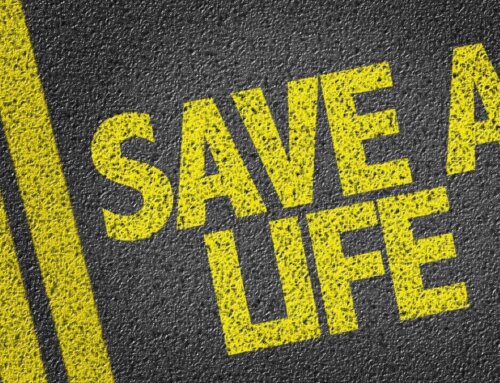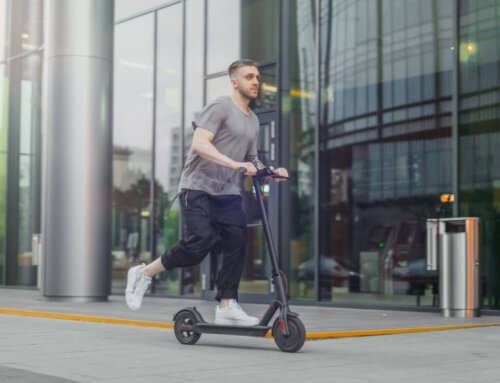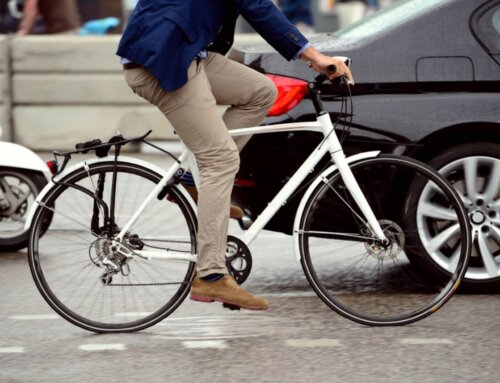A Guardian newspaper report from June 2021 revealed the number of cyclists killed on the roads of Britain in 2020 had increased by 40% compared to the previous year’s figures. This statistic was even more alarming, considering overall cycling accident casualties reduced by 4% over the same period. It also seems a slightly confusing figure, given traffic volumes fell to as low as 22% of the norm during the first pandemic lockdown and to 57% in later lockdowns.
It was pretty clear where some experts seemed to think the root of the problem lies.
Duncan Dollimore from Cycling UK was quoted as saying:
“Despite less people driving during the pandemic, police reports showed an increase in dangerous driving. This type of lethal behaviour needs tackling.”
The president of the Automobile Association (AA), Edmund King, in referring to the increase in cycling accident fatalities, added:
“This points strongly to the need for better engineering, more education and more cops in cars to help eliminate road deaths.”
It is sadly a fact of life: cyclists and motorists do not appear to make for a good mix on the roads of the UK. There is more than enough material to write a book about why this might be. Some examples of theories put forward at different times include:
- A mutual distrust bordering on a state of dislike or even hatred between motorists and cyclists.
- Too many cyclists and too many motorists on the road at the same time.
- A lack of suitable cycling infrastructure
- Ignorance of the rules of the Highway Code
- Bad driving – too fast, too close and too impatient
- Poor cycling – riding through red traffic lights, ignoring stop signs and failing to give way at pedestrian crossings
It is, immensely important there are serious discussions about why there are so many cycling accident injuries (in 2020: 142 killed, 4215 seriously injured, 11,938 slightly injured and many more unreported).
After all, cyclists are classed as vulnerable road users in the Highway Code. Proposed changes to the Code will go one step further and introduce a new ‘hierarchy of road users’, with cyclists second only to pedestrians when it comes to working out which road users are the most vulnerable. The new rules will be important because they place the highest degree of responsibility on motorists: car drivers, van drivers and especially lorry drivers, to ensure they do not endanger the safety of vulnerable road users.
However, given they won’t disappear overnight shouldn’t we simultaneously discuss minimising the effects of cycling accidents?
We have to accept cycling accidents will happen. That isn’t to say we accept the current volume of cycling accident casualties as being acceptable.
Yet, cycling accidents are, to some degree, inevitable. So, in the event of a road traffic accident, how can the cyclist best minimise their chances of suffering serious injury?
Protective gloves, reinforced clothing and mouth guards can help to prevent or at least soften the effect of some injuries, such as heavy lacerations and skin abrasions.
Cycling helmets are, though, the most critical piece of cycling safety equipment. Some of the worst cycling injuries are head injuries. Brain injuries of all types, from concussions to very severe brain damage, are too often, the consequences of cycling accidents. If a cycling helmet prevents a fatal accident or a severe brain injury, it has done its job.
What are cycling helmets made of?
The traditional cycling helmet consists of expanded polystyrene form (EPS foam), which has a polycarbonate covering. The materials are easy to shape to produce the aerodynamic shape we are used to seeing in modern cycling helmets. Improvements in design, materials and manufacturing process are consistently being made, with a view to improving effectiveness.
Do cycling helmets work?
The million-dollar question. According to Headway, the Brain Injury Association, it is proven cycle helmets reduce the risk of fatalities and can prevent cycling accident victims from getting life-changing brain injuries. Headway points to research and the number of eminent professionals who support this view. It also points to the conclusions of a whole raft of eminent studies, with findings such as:
- 6% of victims who were not wearing a helmet when the accident occurred suffered a severe Traumatic Brain Injury (TBI), compared to 19.1% who were wearing a helmet (source BMJ Open)
- Wearing a cycle helmet reduces the risk of suffering a serious head injury in an RTA or other accident by around 70%. It reduces the incidence of fatal injury by 65% (source Bicycle Injuries and Helmet use Olivier, Creighton 2016)
- There’s a ‘large and consistent protective effect from cycle helmets’, with a reduction of the risk of brain injury by 88% and of facial injuries by 65% (source: A case study of the effectiveness of bicycle safety helmets – Thompson, Rivara and Thompson)
Is it compulsory to wear a cycling helmet whilst riding a bike on the road in the UK?
With the evidence for wearing a cycling helmet seeming to be overwhelmingly in favour of doing so, you would think wearing a helmet must be compulsory. It isn’t. It isn’t even mandatory for children to wear a cycling helmet when they ride on the road. All of this is despite the Highway Code in rule 59 telling us:
“You should wear… a cycle helmet which conforms to current regulations, is the correct size and securely fashioned.”
Opponents of compulsory wearing of cycle helmets point to academic studies that have found no evidence wearing a helmet lessens the riders risk of suffering a fatal injury or a severe head injury. (Source GB Rodgers: Journal of Products Liability 1988)
For former Olympic cycling champion Chris Boardman, focusing on making helmets obligatory, is a ‘red herring’ in the debate about making cycling safe. Boardman was quoted as saying he preferred to ‘focus the debate on the cause (of cycling accidents) and campaign for what will really make cycling safe.’ Boardman did stress that most of the time he wore a helmet when cycling around town.
There is even dome research suggesting cyclists wearing helmets are at greater risk of being hit than those who aren’t. One such study’s results revealed car drivers are more likely to keep their distance if they see a cyclist is not wearing a helmet than if they are. They are even more likely to keep their distance if the cyclist without a helmet is a woman. (Source: Wearing a Bicycle Helmet Can Increase Risk-Taking and Sensation Seeking in Adults – Gamble/Walker)
Would not wearing a helmet affect my personal injury claim following a cycling accident?
If you suffered personal injury in a cycling accident caused by the actions of a negligent motorist, you would be entitled to bring a personal injury claim against the offending motorist. What would be the case if you were not wearing a helmet? Would you still be able to claim for the injuries sustained in the accident?
If the motorist who collided with you was at fault, your failure to wear a cycling helmet would not affect the finding of responsibility against the driver
However, a court may find you have contributed to the severity of the injury you sustained by not wearing a helmet. This is called ‘contributory negligence’. If your injury would have been avoided entirely or significantly reduced in severity by wearing a helmet, a court may reduce your compensation.
The amount it could be reduced by would likely be between 15% and 25. However, a court would want to see expert medical evidence outlining whether the expert believes failure to wear a cycling helmet has made the injury worse or not.
There is no formal law in England and Wales stating that failure to wear a helmet will lead to a finding of contributory negligence in a cycling accident claim.
Conclusion
Should it become compulsory to wear a cycling helmet whilst cycling on the road?
As this article has attempted to show, there are valid arguments for and against making it a requirement to do so.
Would making a helmet-wearing compulsory, reduce the number of cyclists killed or seriously injured on our roads each year? Or are we exaggerating the effectiveness of current cycling helmets?
Do motorists take more care when driving past a cyclist who is not wearing a helmet, than one who is?
Are we infringing people’s civil liberties if we make wearing a helmet compulsory?
It is compulsory to wear a motorcycle helmet when riding on the road. Why then should cyclists be treated differently?
Does focusing on the cycling helmet debate deflect from tackling the causes of cycling accidents, as suggested by Chris Boardman. Instead, would we be better off devoting our time, energy and money to building better cycling infrastructure and generally making the roads a safer place for cyclists to co-exist with other road users?
As a firm of personal injury solicitors, we regularly act for the victims of cycling accidents and see the types of serious injuries our clients sustain. We find it hard to argue against the position put forward by the brain injury charity, Headway, which can be summarised as follows:
- Helmets should be made compulsory for child cyclists
- More dedicated cycle lanes need building
- There must be a concerted effort to run educational safety campaigns aimed at motorists and cyclists.
The debate will rumble on. However, what would be unacceptable is if no positive steps get taken at all. Retaining the status quo will only lead to more deaths and more serious injuries to cyclists.
Mooneerams solicitors are specialist personal injury solicitors. We have been helping the injured victims of cycling accidents to recover personal injury compensation for twenty years. We only act for claimants, never for insurance companies.
If you’ve been injured in a cycling accident, and would like to consider making a cycling accident claim, call us now for a free consultation with one of our experienced personal injury team members. Call us on 029 2048 3615 or send your details to us using the enquiry box on this page, and we will get back to you.
We handle most cyclist accident claims on a No Win No Fee basis.










